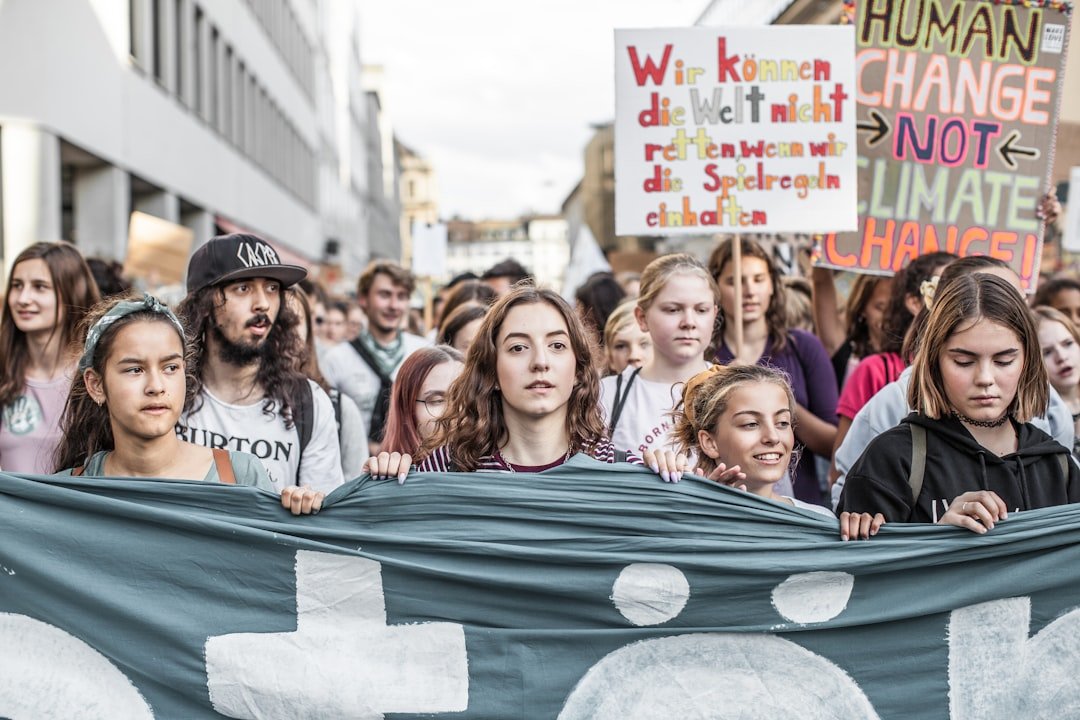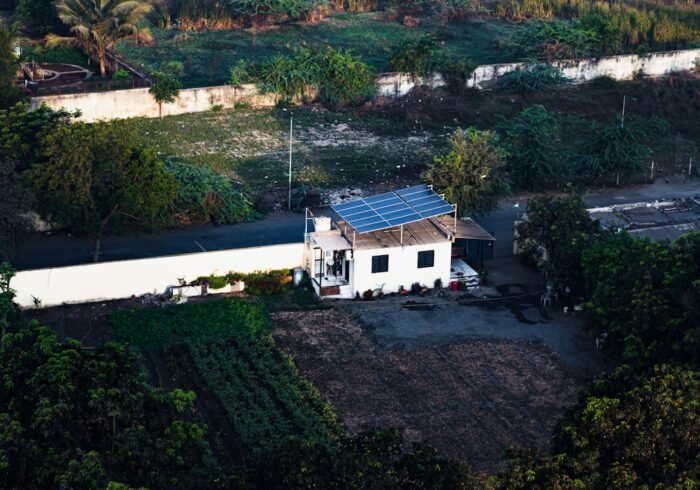Plastic Ocean Pollution’s Effect on Marine Life Plastic ocean pollution has become one of the 21st century’s most urgent environmental problems, with significant effects on marine life. Millions of tons of plastic debris litter the world’s oceans, endangering a wide variety of marine life with their presence. For example, plastic bags are frequently mistaken for jellyfish by sea turtles, which can result in ingestion that can harm internal organs or even kill them.
Key Takeaways
- Plastic ocean pollution has a devastating impact on marine life, leading to entanglement, ingestion, and habitat destruction.
- The main sources of plastic ocean pollution include single-use plastics, microplastics from synthetic clothing, and industrial waste.
- Plastic ocean pollution can have adverse effects on human health through the consumption of contaminated seafood and the release of toxic chemicals from plastics.
- Efforts to combat plastic ocean pollution include beach clean-ups, recycling initiatives, and the development of biodegradable alternatives to plastic.
- Government and policy play a crucial role in addressing plastic ocean pollution through regulations, bans on single-use plastics, and international agreements.
Similar to this, seabirds have been observed to eat pieces of plastic because they believe it to be food. This can cause malnutrition or starvation as the indigestible materials fill their stomachs. Also, plastic pollution has effects that go beyond simple consumption. Plastic particles smaller than five millimeters, known as microplastics, have entered the marine food chain. Larger predators eat the small fish and invertebrates that eat these particles.
In marine organisms, the bioaccumulation of plastics can cause hormonal imbalances and interfere with reproductive systems. Individual species as well as the general health of marine environments are impacted by the repercussions, which have an ecosystem-wide effect. Marine ecosystems’ fragile balance is being put in greater danger as these pollutants keep piling up. The Origins of Plastic Ocean Pollution From both land-based & ocean-based activities, plastic ocean pollution comes from a wide range of sources.
Inadequate waste management techniques are a major contributor to the issue on land. Plastic waste is washed into rivers and eventually ends up in the ocean in many areas due to poor recycling infrastructure and littering. Plastic waste tends to be more prevalent in densely populated urban areas because of rising consumption and inadequate disposal infrastructure. Plastic pollution is mostly caused by activities that take place in the ocean in addition to land-based sources.
| Country | Plastic Waste Generation (million tons/year) | Plastic Waste Mismanaged (million tons/year) |
|---|---|---|
| China | 59.8 | 8.8 |
| Indonesia | 3.2 | 1.29 |
| Philippines | 2.7 | 0.75 |
| Vietnam | 1.8 | 0.75 |
Nets and lines are examples of fishing gear that is commonly lost or thrown into the water, resulting in “ghost gear.”. This abandoned equipment still traps marine life, which can cause harm or even death. Also, unintentional spills and waste discharge are two ways that shipping operations exacerbate the issue. When these sources come together, a complicated web of pollution is produced that is difficult to address and reduce. The Impact of Plastic Ocean Pollution on Human Health Plastic ocean pollution has serious negative effects on human health in addition to its effects on marine ecosystems.
Consuming seafood is how microplastics eventually enter human diets after entering the food chain. According to studies, microplastics, which may contain toxic chemicals, can be found in fish and shellfish. People may inadvertently swallow these dangerous chemicals when they eat these tainted seafood products, which could result in health problems. Also, the degradation of the environment caused by plastics in the ocean can also have an indirect impact on human health.
Toxins produced by toxic algal blooms in polluted waters can contaminate seafood and endanger human health. Communities that depend on fishing for a living may also experience financial difficulties as pollution causes fish populations to decline. For those who depend on marine resources, this economic strain may result in food insecurity and elevated health risks. Initiatives to Address Plastic Ocean Pollution A number of initiatives have been launched at the local, national, & international levels in response to the escalating problem of plastic ocean pollution.
Around the world, grassroots movements have arisen to promote sustainable alternatives and lessen the use of plastic. The popularity of community clean-up events has grown, bringing together volunteers to clear beaches and waterways of plastic waste. These programs promote environmental stewardship & a feeling of community in addition to reducing pollution. On a broader scale, governments & organizations are putting policies into place to lessen the production and consumption of plastic.
Many nations have banned single-use plastics, which encourages people to switch to reusable alternatives. In order to create legally binding commitments for nations to reduce plastic waste, international agreements like the Global Plastics Treaty are also being considered.
The Role of Government and Policy in Addressing Plastic Ocean Pollution Through legislation & policy initiatives, government action is indispensable in tackling plastic ocean pollution.
By supporting sustainable practices and stimulating innovation in materials science, effective regulations can drastically reduce the production and waste of plastic. For example, extended producer responsibility (EPR) programs are being implemented by many governments to hold manufacturers responsible for the entire lifecycle of their products, including recycling and disposal. In addition, international collaboration is crucial to addressing this worldwide problem. In order to exchange best practices and create all-encompassing plans for handling plastic waste, nations must cooperate.
Policies that address the sources of pollution on land and in the ocean can be more successfully implemented through cooperation. Governments can establish a framework that promotes sustainable development while preserving marine ecosystems by giving environmental protection top priority during the policy-making process. The Significance of Education and Public Awareness The fight against plastic ocean pollution relies heavily on education & public awareness. Educating people about the problem can enable them to make wise decisions regarding their waste disposal and consumption patterns.
Educational initiatives can inspire communities to embrace more sustainable lifestyles and emphasize the significance of minimizing single-use plastics. The promotion of environmental education is greatly aided by community organizations and schools. Teachers can encourage the next generation to take action against this urgent issue by including lessons on plastic pollution in their curricula. Communities can be further engaged in conversations about the effects of plastic pollution & encouraged to work together to find solutions through workshops, seminars, and public events. In the end, encouraging change and holding businesses and governments responsible for their part in combating plastic pollution depend on an informed populace.
Reducing Plastic Ocean Pollution through Innovations and Technologies New technologies are becoming effective weapons in the fight against plastic ocean pollution. Biodegradable substitutes for conventional plastics that decompose more readily in marine environments are being developed by researchers. By extending the life of plastic debris in oceans while preserving consumer functionality, these materials present a promising solution. Recycling procedures are also being improved by developments in waste management technologies.
Because of innovations like chemical recycling, plastics can be broken down into their original monomers and reused indefinitely without losing quality. Also, efforts are being made to improve waste sorting procedures at recycling facilities by utilizing artificial intelligence (AI), which will increase efficiency and lower contamination rates. These developments in technology mark a major breakthrough in the fight against plastic pollution and the development of a circular economy. Challenges & Solutions for the Future of Plastic Ocean Pollution For communities around the world, the future of plastic ocean pollution offers both opportunities and challenges. The amount of waste entering oceans is expected to increase unless major changes are made, as plastic production keeps rising due to rising consumer demand.
Changing consumer behavior is one of the biggest challenges; even with increased awareness of the problem, many people continue to rely heavily on single-use plastics because they are convenient. But as more people, institutions, & governments realize how urgent it is to address this crisis, there is hope for the future. Better recycling initiatives, more stringent laws governing the manufacture of plastic, and more funding for sustainable material research are some of the solutions that are gaining traction.
Developing a comprehensive strategy to address plastic ocean pollution will require cooperation from all parties involved, from local communities to international organizations. Conclusively, the obstacles presented by plastic pollution in the ocean are formidable, but they are not insurmountable. The health of human populations and marine ecosystems can be guaranteed when society strives for a future free of plastic debris in the oceans through cooperation, creative thinking, and a dedication to education & awareness.
Plastic pollution in our oceans is a pressing issue that continues to threaten marine life and ecosystems. According to a recent article on geoengineering as a solution for climate change, the accumulation of plastic waste in our oceans not only harms marine animals but also contributes to the overall degradation of our environment. As we strive to address the impacts of greenhouse gases on climate change, it is crucial that we also prioritize efforts to reduce plastic pollution and protect our oceans for future generations.



